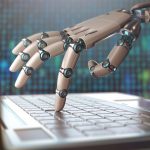The realm of Human Resources (HR) has undergone a monumental shift over the decades. Once rooted in basic administrative functions, HR now stands at the forefront of digital transformation and data-driven decision-making. This article delves into this remarkable evolution, highlighting key milestones from the late 19th century to the present digital age. We will explore insights from the book ‘Data-Driven HR: How to Use AI, Analytics, and Data to Drive Performance’ to understand the transformative journey of HR.
The Early Beginnings of HR
HR’s journey began in the late 19th century, a time marked by the Industrial Revolution’s radical changes. Initially focused on personnel management, HR departments handled basic functions like maintaining employee records and managing wages. This era’s HR was largely reactive, lacking foresight into employee needs or desires.
HR in the Progressive Era
During the Progressive Era, HR’s role expanded to managing employee relations and ensuring compliance with labor laws. This period set the foundation for a more proactive approach in HR practices, focusing on better working conditions and employee satisfaction.
The Digital Transformation in HR
The advent of HR information systems (HRIS) in the 1980s and 1990s marked a significant turning point. These systems revolutionized HR by automating traditional functions and enabling data-driven approaches. As stated in ‘Data-Driven HR’, “The adoption of HRIS…set the stage for a new era of data-driven HR.”
HR in the 21st Century: Embracing AI and Analytics
The early 2000s saw HR transitioning into a more sophisticated realm with talent management systems and big data. These advancements allowed HR professionals to utilize data analysis tools for more informed decision-making. The introduction of AI, machine learning, and blockchain further transformed HR into a dynamic, data-centric field.
The Future of HR: Data-Driven and AI-Enabled
Today, HR is not just about managing people; it’s about leading digital transformation and fostering a data-driven culture. The COVID-19 pandemic further accelerated this shift, necessitating innovative approaches to manage remote work and employee well-being. As HR continues to evolve, the focus on data-driven strategies will become increasingly paramount.
Conclusion
The evolution of HR reflects a journey from manual, reactive processes to strategic, data-driven practices. This transformation underscores the importance of adapting to technological advancements and evolving workplace dynamics. As we look to the future, the role of data and AI in HR is only set to increase, promising a new era of efficiency and strategic insights.
We invite our readers to share their thoughts and experiences on this evolution. How has the shift towards data-driven HR impacted your organization or career? Comment below to join the discussion!












